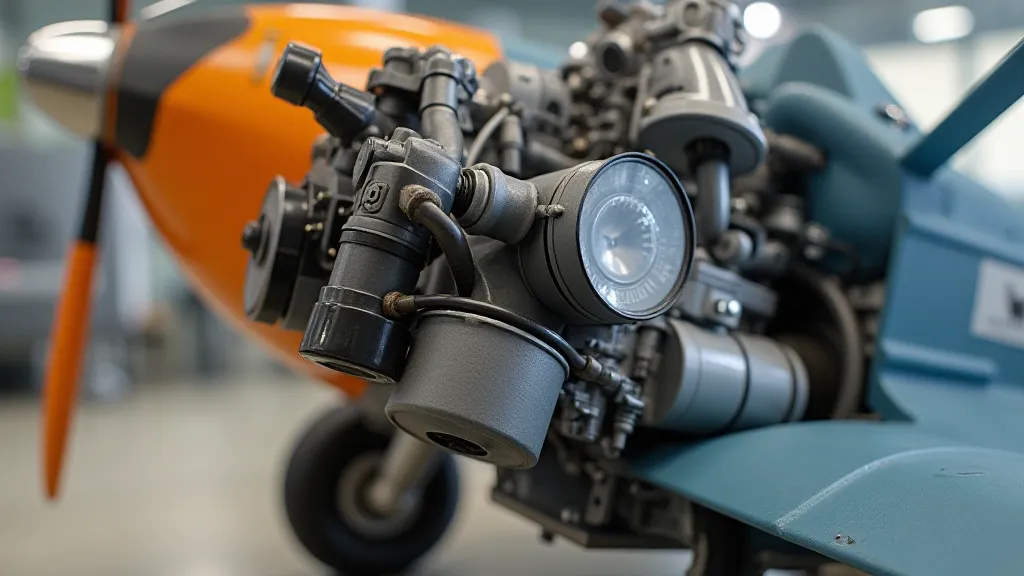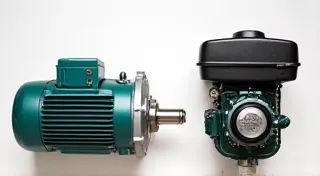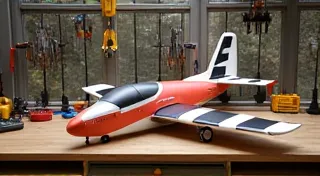Choosing the Right Motor: Electric vs. Gas
Deciding which type of engine to power your RC airplane is one of the most important early decisions you're going to make. Both electric and gas engines offer unique advantages and disadvantages, impacting everything from initial cost to ongoing maintenance and flight performance. This article will break down the pros and cons of each, helping you choose the right motor for your DIY RC airplane project.
Electric Motors: The Modern Choice
Electric motors have become increasingly popular in the RC airplane hobby, and for good reason. They offer a clean, quiet, and relatively simple operating experience.
Pros of Electric Motors:
- Quiet Operation: Electric motors are significantly quieter than gas engines, making them much more enjoyable for pilots and those living nearby.
- Ease of Use & Maintenance: Electric motors require very little maintenance. There's no need to mix fuel, adjust carburetors, or deal with exhaust.
- Cleanliness: No oil or fuel spills! Electric power is a much cleaner option.
- Instant Power: Electric motors deliver instant torque, which can be great for quick maneuvers and vertical climbs.
- Increasing Efficiency: Battery technology continues to improve, leading to longer flight times and better performance.

Cons of Electric Motors:
- Initial Cost: Electric motors, batteries, and chargers can have a higher upfront cost than gas engines.
- Flight Time: Flight times are typically shorter with electric power, limited by battery capacity.
- Battery Charging: You're reliant on having access to a power outlet to recharge your batteries.
- Battery Life: Batteries degrade over time and eventually need to be replaced, adding to ongoing costs.
Gas Engines: The Traditional Powerhouse
Gas engines have been the standard for many years and offer a unique set of benefits. While they require more maintenance, they can deliver a lot of power for the size and weight.
Pros of Gas Engines:
- Power & Performance: Gas engines generally offer a higher power-to-weight ratio than electric motors, allowing for larger and more powerful airplanes.
- Longer Flight Times: With a sufficient fuel tank, gas engines can provide significantly longer flight times than electric motors.
- Fuel Availability: Fuel is readily available at most hobby shops.

Cons of Gas Engines:
- Maintenance: Gas engines require regular maintenance, including fuel mixing, carburetor adjustments, and spark plug changes.
- Noise: Gas engines can be quite loud, which may be a concern in some areas.
- Fumes: Operating a gas engine produces exhaust fumes.
- Complexity: Gas engines are more complex mechanically than electric motors, which can make troubleshooting more challenging.
- Fuel Mixing: Getting the fuel/oil mixture correct is critical for engine longevity.
Making Your Decision
Ultimately, the best choice depends on your priorities. If you value convenience, quiet operation, and ease of maintenance, an electric motor is likely the better option. If you desire maximum power, long flight times, and don’t mind the extra maintenance, a gas engine might be more appealing. Consider your budget, skill level, and the type of RC airplane you plan to build when making your decision.

Happy building and flying!





